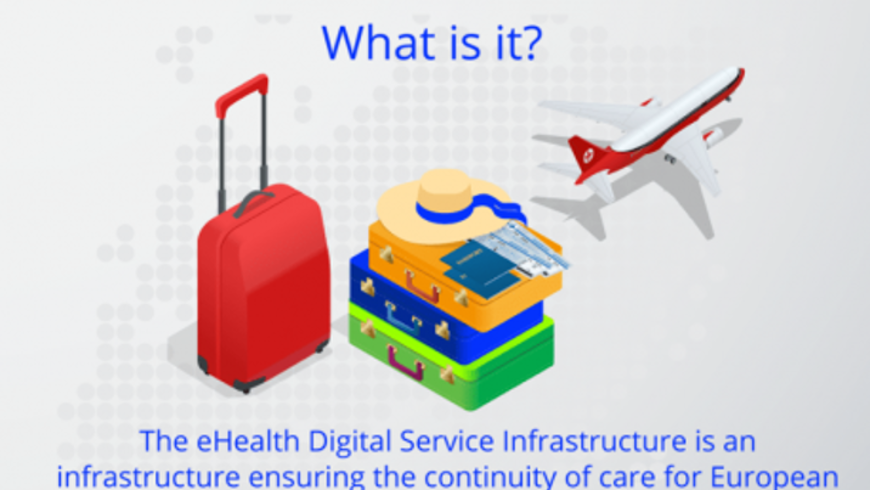
MyHealth@EU
Advancing European Healthcare through Interoperability
MyHealth@EU is a European Union initiative aimed at advancing digital health solutions and services across EU and EEA member states, striving to revolutionise healthcare by promoting interoperability to ensure seamless data exchange among healthcare providers, patients, and systems. The benefits of this initiative are vast and impactful, yet the journey toward achieving full health data interoperability is met with several challenges.
The key benefits of European Health Interoperability include:
Enhanced Patient Care & Accessibility: MyHealth@EU's primary objective revolves around improving patient care. By establishing interoperable systems, it facilitates swift access to vital health information, enabling healthcare providers to deliver more informed, timely, and personalised care. Patients, in turn, gain greater control over their health data, allowing them to actively participate in their care management.
Improved Healthcare Efficiency: Interoperability streamlines administrative tasks and data sharing processes. It reduces redundant procedures, minimises errors, and optimises resource allocation. This efficiency translates into cost savings for healthcare systems and ensures better utilisation of healthcare resources.
Accelerated Innovation & Research: The initiative fosters a conducive environment for innovation. By standardising data formats and protocols, it encourages the development of cutting-edge health technologies and supports research efforts across borders. This collaboration paves the way for breakthroughs in healthcare practices and the introduction of novel treatments.
MyHealth@EU essentially focuses on several key pillars within the digital healthcare landscape:
- Interoperability: Promoting EU standards and guidelines that allow different health systems to seamlessly communicate and share data in a safe and secure manner, ensuring that patient information is easily accessible across borders. To date, the EU have developed and released standards and guides relating to patient summary, ePrescription, hospital discharge report data exchange with medical imaging and laboratory results guidelines currently being finalised.
- Electronic Health Records: Encouraging the adoption and integration of electronic health records to consolidate patient information, making it accessible to healthcare providers when needed, irrespective of geographical locations.
- Telemedicine and Remote Monitoring: Supporting the use of telemedicine tools and remote monitoring solutions to enable consultations and healthcare services remotely, improving accessibility, especially in rural or underserved areas.
- Data Security and Privacy: Emphasising the importance of maintaining robust security measures to safeguard patient data while ensuring compliance with strict privacy regulations like GDPR (General Data Protection Regulation) and patient consent.
- Innovation and Research: Encouraging the development of innovative digital health solutions and fostering research in the field to continually improve healthcare practices and technologies. MyHealth@EU serves as a collaborative platform aiming to harmonise digital health initiatives across EU member states to enhance the overall quality, accessibility, and efficiency of healthcare services.
While we all recognise the important benefits that health data interoperability throughout the EU will bring, we must also recognise the challenges and issues that we face today, to include:
Diverse Healthcare Systems:
The EU comprises diverse healthcare systems, each with its own regulations, technical infrastructure, and cultural nuances. Harmonising these systems to ensure seamless interoperability requires aligning standards and protocols, which is a complex and time consuming task.
Data Privacy and Security:
Maintaining patient data security and privacy is paramount. Adhering to stringent data protection regulations while enabling free-flowing data exchange presents a significant challenge. Striking the right balance between data accessibility and protection demands robust security measures and clear regulatory frameworks.
Technical Challenges & Infrastructure:
Implementing interoperability necessitates the integration of disparate technological platforms and ensuring their compatibility. Legacy systems, varying levels of technological readiness, and differing data formats pose technical hurdles that need to be overcome.
Standardisation & Regulation:
MyHealth@EU emphasizes the standardisation of data formats, terminology, and protocols to facilitate interoperability. It calls for the alignment of regulations and policies across member states to create a cohesive framework for data sharing and usage.
Collaborative Partnerships:
Collaboration between governments, healthcare providers, technology vendors, and patient advocacy groups is vital. This collaboration fosters the sharing of expertise, resources, and best practices, accelerating the implementation of interoperable systems.
Continuous Improvement & Adaptation:
The journey toward full interoperability is ongoing. Regular assessments, feedback mechanisms, and iterative improvements are crucial. Flexibility and adaptability in addressing evolving technological advancements and healthcare needs are key to the success of the initiative.
In conclusion, MyHealth@EU's pursuit of health interoperability presents an enormous opportunity in European healthcare. While challenges persist, the initiative's commitment to advancing patient care, driving innovation, and enhancing healthcare efficiency remains steadfast. Through collaborative efforts and sustained dedication, the EU inches closer to realising a seamlessly interconnected healthcare ecosystem for the benefit of all. Ireland is a very active participant of MyHealth@EU and Ireland is legally mandated to implement digital health interoperability by 2029. The Irish MyHealth@EU team, part of eHealth Standards and Shared Care Records, are actively involved in the development, deployment and testing of the standards and guidelines within Ireland and we aim to go live shortly with our 1st health data exchange service covering patient summary records for EU citizens travelling into Ireland, and then build on this initial service with eDispensation and ePrescription of medicines.
Please feel free to email MyHealth.EU@HSE.ie or visit ehealth digital health and care for additional information on health data interoperability.
View the MyHealth@EU webpage here.

